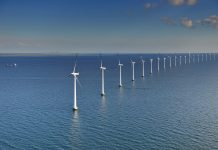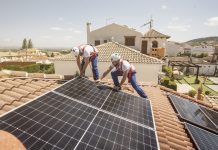Fighting climate change is no longer an expensive hobby for the rich. Rather, embracing renewables will make everybody richer, says the Danish Minister for Energy, Utilities and Climate, Lars Christian Lilleholt
In 2015, the vast majority of countries adopted the Paris Agreement on climate change. In essence, we promised to limit greenhouse gas emissions to a level, which will hinder temperature increases of no more than 2 degrees above pre-industrial levels and to pursue efforts to limit the temperature increase even further to 1.5 degrees Celsius this century.
Critics keep ridiculing the Paris objectives as unachievable and disastrous for the global economy while pointing at ever-rising greenhouse gas emissions globally. Nonetheless, the Danish Government remains optimistic. A united Parliament last year adopted a target of zero-net emissions by 2050. We are not dreaming: our optimism is based on 30 years of active and successful energy and climate policies.
Denmark has reduced greenhouse gas emissions by around 27% from 1990 till 2017, and we expect to have decreased our emissions by approximately 45% by 2030. Still, the Danish economy is flourishing – partly because our policies have nurtured globally leading green energy industries.
Intermittent wind and solar power already cover more than 40% of Danish electricity consumption – notably without sacrificing energy security or affordability: the Danish electricity system is one of the most reliable in Europe – not least due to strong interconnections with our neighbouring countries. The World Energy Council has repeatedly ranked Danish energy security number one in the world. On top of that, Danish electricity prices excluding taxes remain among the lowest in the European Union (EU).
This is good news and not only for Denmark: renewable electricity production stands to conquer the rest of the world due to simple economics. Prices of renewable electricity have tumbled to a level where they can compete with new fossil-based electricity in large parts of the world and the cost-trend of renewables continues steeply downwards. Increasingly, renewables can also compete with existing fossil capacity with capital costs already written-off. A recent bidding round in Denmark for new renewable electricity capacity reduced subsidies needed to less than one-third of a euro-cent pr. kWh. Renewables are sound economics, which will both help save the global climate and make most countries richer and cleaner.
Yet, there is no time for complacency: five major research institutes have just confirmed 2018 as the fourth warmest year on earth since 1880. 18 of the 19 hottest years since 1880 have taken place since 2001. After stabilising for a few years, global greenhouse gas emissions have started growing again.
Granted that renewables can minimise energy sector emissions, we still have to tackle two difficult sectors with large and increasing greenhouse gas emissions: transport and agriculture. For both sectors, low-emission alternatives still seem either costly or even non-proven.
The cost of renewables has only got down through many years of dedicated and often costly energy and climate policies undertaken by a relatively small number of countries. We must try to copy the most successful policy interventions to ensure similar cost reductions for low-emission alternatives in transport and food production.
A few general lessons may be distilled: ground-breaking inventions in most cases come from targeted research programmes financed by governments. When new technologies have matured it has been key to create sufficient markets to attract a number of producers. If governments foster competition, intense learning and cost-cutting will usually follow.
Electric cars are now in a rather mature state with costs dropping and range increasing. Hence, the time has come for states to help scale up markets. The Danish Government has decided that no new traditional petrol and diesel cars will be registered in Denmark from 2030. Already by 2025, new urban buses and from 2030 all urban buses must be zero-emission. Upfront, these targets definitely seem costly. But we are confident that the robust demand for zero-emission cars and buses will bring down costs significantly. The Danish market is way too small to guarantee success, but by joining similar efforts by other climate ambitious states we will succeed. Accordingly, Denmark is advocating similar targets to be adopted by the EU. This would definitely accelerate technology development and cost-cutting – while helping both the global climate and European air-quality.
At present, agriculture causes up to 25% of global greenhouse gas emissions and bringing that down poses major challenges. The main emission-driver is meat consumption, which tends to go up along with higher global incomes and population. Copying rich world meat consumption for all could put a heavy strain on global land resources. So far – few low-emission alternatives seem at hand – except for the vegetarian diets now being abandoned by consumers in emerging economies.
But we have to face up to the task. Basic research in low-emission food technologies have been wanting and commercial R&D all but absent. The Danish Government is now trying to rectify this with a new, dedicated food-climate-change research programme. Others must follow suit. If so, human ingenuity eventually will provide good solutions.
In conclusion, present greenhouse gas emission trends are definitely of concern. 30 years ago, CO2 emissions from energy were the climate problem. But sustained efforts over many years have now delivered low-cost renewables, which will eliminate emissions from the energy sector. Affordable zero-emission technologies are forthcoming for a major part of transport emissions. Emissions from food-production remain a major challenge but definitely not an insurmountable one.
Lars Christian Lilleholt
Danish Minister for Energy, Utilities and Climate
Ministry of Climate, Energy and Building
Tel: +45 3392 2800
www.ft.dk/da/medlemmer/folketingetsmedlemmer/lars-christian-lilleholt-(v)











